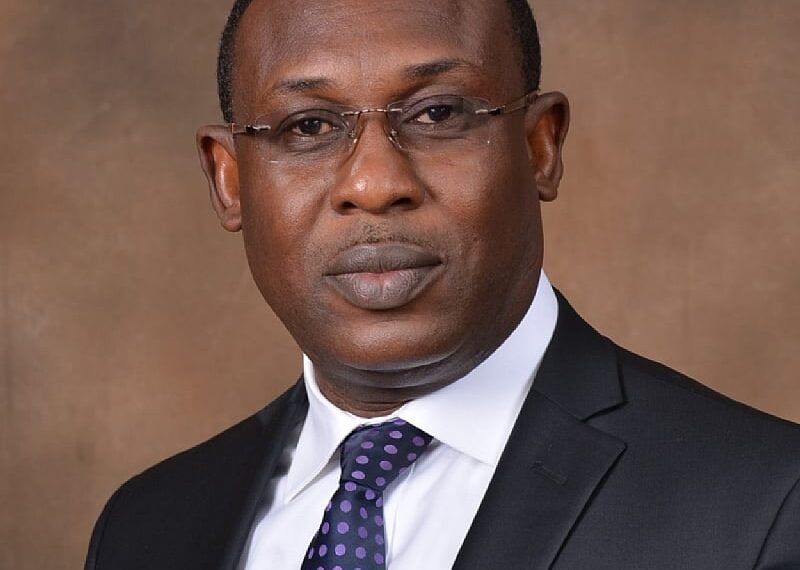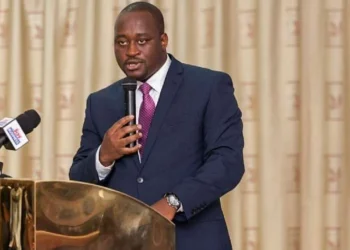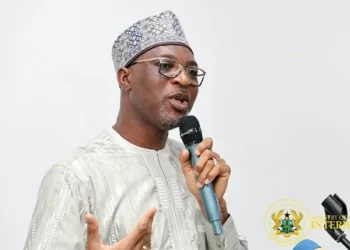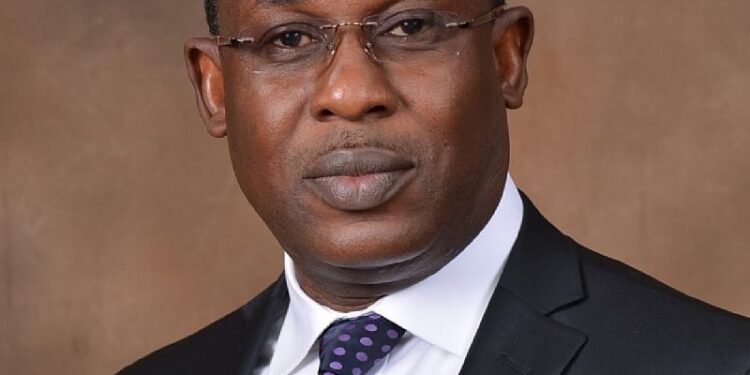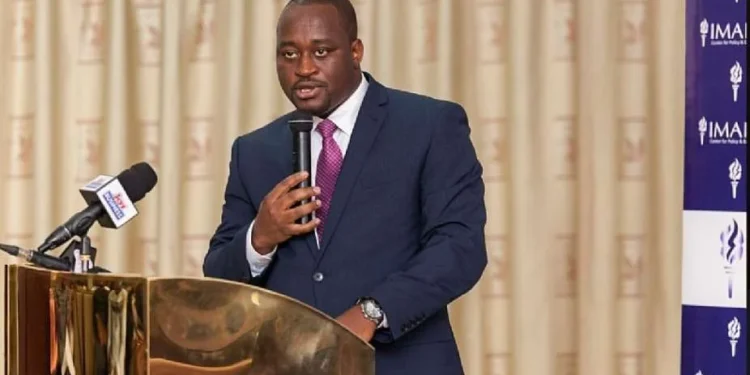Legal expert and Honorary Vice President of the IMANI Center for Policy and Education, Mr. Kofi Bentil, has emphasized the need for digital reforms in Ghana’s judiciary system.
Mr. Bentil underscored the point that the new Chief Justice, Justice Baffoe-Bonnie, must set the course for these reforms.
Mr. Bentil noted that he does not share in the view that Justice Baffoe-Bonnie can carry out all the needed reforms of the judiciary, as he has just one year to do so.
However, he argued that the new Chief Justice can set the pace for these reforms by anchoring them on modern technology, emphasizing the urgent need for the introduction of modern technology for the improvement of judicial processes.
He highlighted Justice Baffoe-Bonnie’s experience, given his long service at the judiciary, as that which makes him the best fit for the reforms so needed.
“With his experience, if anybody knows what is wrong with our system, he does. But I disagree with those who think he can change everything in a year; he can’t.
“But this is what he can do. He can set the course for the reforms that we need. And he said some of those things.”
Mr. Kofi Bentil, Legal Practitioner and Honorary Vice President of IMANI
Mr. Bentil noted that while best practices globally show that court cases can be heard virtually, Ghana’s system still relies on outmoded practices that set the country’s justice delivery system backwards.

“We are at a point where it doesn’t make sense for us to do justice delivery the way it was done a hundred years ago. These paradigms are so hardened in our system that it’s difficult for us to break out of them.
“A part like you have to go to a court to be heard. Today, in the US and in many other countries, they do it. You don’t have to go to a court to be heard. The Supreme Court does hearings over the phone.”
Mr. Kofi Bentil, Legal Practitioner and Honorary Vice President of IMANI
He further emphasized that justice delivery would be made better with the introduction of virtual hearings of cases where a lawyer must not necessarily travel from Accra to Wa for his case to be heard.
“It does not make sense that I have to travel to be heard. We all have to have an arrangement where when you have a case, you can opt to be in court, or if you cannot be in court, opt to do it virtually.”
Mr. Kofi Bentil, Legal Practitioner and Honorary Vice President of IMANI
He explained that these arrangements should include the judges, emphasizing how that would be instrumental for fast-tracking justice delivery.
Mr. Bentil added that virtual hearing of cases is not completely alien to Ghana’s system, stating that it is often used during the legal break.
“In Ghana, when the courts are on vacation, we do virtual hearings. I sit in my office, and the judges are in their office, and the other lawyers are in their office. We all connect on Zoom and Teams, and we do it.”
Mr. Kofi Bentil, Legal Practitioner and Honorary Vice President of IMANI
He thereby emphasized that this method must be streamlined to cover the entire system and not limited to only the period when the courts are on break.
He also lamented the enormity of paperwork that is still embedded in the court processes, noting his struggle with having to comprehend why such cannot be phased out and replaced with a paperless system.
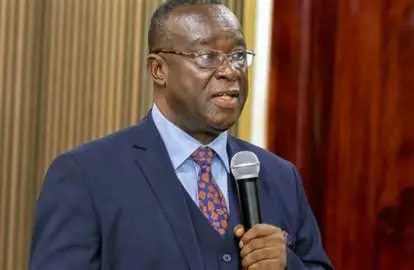
“You have a situation today where lawyers have to speak and wait for somebody to type it verbatim. In this day and age when my phone can do transcription, and it messes with my mind.”
Mr. Kofi Bentil, Legal Practitioner and Honorary Vice President of IMANI
Mr. Bentil also highlighted the filling of court processes, emphasizing that it can also be adapted to an online arrangement where cases can be filed through email.
He emphasized that it should be possible for lawyers to be served process via email and have them also file their response through the same channel.
He further underscored the urgent need for the country’s judicial system to “move hard into technology,” emphasizing that “justice will be better delivered if we move quicker into these areas.”
Mr. Bentil noted that Justice Baffoe-Bonnie himself has been speaking to some of these reformative measures, emphasizing that “he can leave a legacy by setting us on a hard path towards [these reforms] and make sure that he is the Chief Justice who turned round the transformation.”
READ ALSO: ASEC Flags Major Energy Sector Risks in Ghana’s 2026 Budget Despite Strong Fiscal Gains

